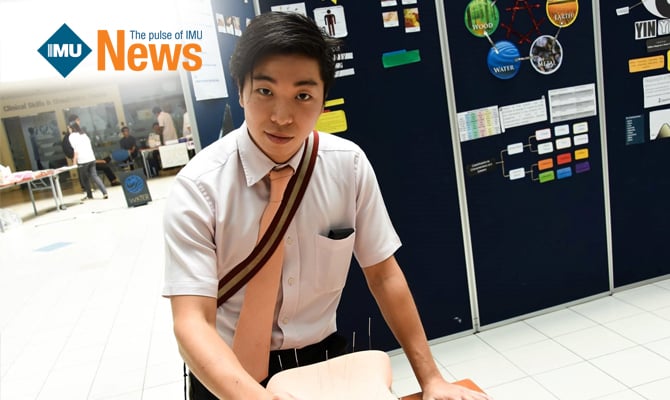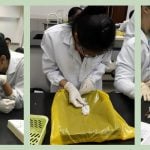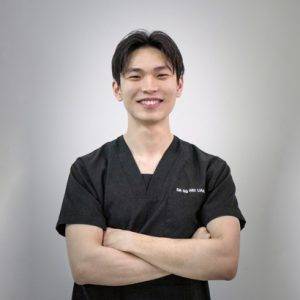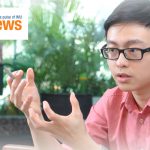Hello! My name is Tatsuki Abe, a 3rd year Chinese Medicine student at IMU – my second degree after I have completed my first one at IMU which was the 5-year MBBS programme. I initially enrolled for the IMU MBBS simply because it was close to home in Kuala Lumpur, and I never knew there were other universities available. Thankfully so! Because currently I am convinced that IMU is undoubtedly the best choice – so much so, that when I decided to pursue Chinese Medicine, IMU was my only choice because of the faith I have in this University.  My time studying MBBS at IMU was literally the best time in my life – some may say that studying medicine is stressful, which I don’t deny, but when there is interest in the content we study, learning becomes a joy, and I have been blessed with great batchmates whom I can rely on in difficult times. I have had high hopes for learning Chinese Medicine at IMU, but my experiences have been beyond my expectations. Chinese Medicine itself is a very interesting field to venture into. The strength of Chinese Medicine compared to Conventional Medicine is its flexibility, holism, and patient-centeredness. Since ancient times, Chinese Medicine has been developed to meet the demand of patients’ complaints. Western medicine has – in a short amount of time in history – made great leaps in its technical advancements and saved millions of people. However, during its great leaps, certain aspects of patient care has been overlooked, perhaps NOT due to negligence or carelessness, but more so because of realistic limitations like time and effort required to supply the best evidence-based care for patients to get best results from it. What I have felt during my time in MBBS, is that conventional medicine diagnoses and treat diseases extremely well – especially when they fit the “classical picture” or the textbook presentation. However, some of the patients weren’t completely treated when patients’ complaints are vague, or when there were no structural abnormalities.
My time studying MBBS at IMU was literally the best time in my life – some may say that studying medicine is stressful, which I don’t deny, but when there is interest in the content we study, learning becomes a joy, and I have been blessed with great batchmates whom I can rely on in difficult times. I have had high hopes for learning Chinese Medicine at IMU, but my experiences have been beyond my expectations. Chinese Medicine itself is a very interesting field to venture into. The strength of Chinese Medicine compared to Conventional Medicine is its flexibility, holism, and patient-centeredness. Since ancient times, Chinese Medicine has been developed to meet the demand of patients’ complaints. Western medicine has – in a short amount of time in history – made great leaps in its technical advancements and saved millions of people. However, during its great leaps, certain aspects of patient care has been overlooked, perhaps NOT due to negligence or carelessness, but more so because of realistic limitations like time and effort required to supply the best evidence-based care for patients to get best results from it. What I have felt during my time in MBBS, is that conventional medicine diagnoses and treat diseases extremely well – especially when they fit the “classical picture” or the textbook presentation. However, some of the patients weren’t completely treated when patients’ complaints are vague, or when there were no structural abnormalities.  I have decided to study Chinese Medicine, so that I could find out if there is any way in which I can have variety in the way I treat patients. Ultimately, my interest in healthcare is primary care – the kind of healthcare professional that people can go to first, ask a lot of questions, get referrals from, and get follow-ups from. I am also interested in whatever that may keep us healthy, from dietary habits to exercise methods. Therefore, I thought that having a wider range of expertise may increase the things I can suggest to patients, as well as increase the variety of professionals I can refer my future patients to. I feel that IMU Chinese Medicine curriculum gives us several ways to be exposed to the current state of care that we can provide, through IMU Cares projects as well as hospital visits. Moreover, in IMU we are exposed to multiple healthcare professions – which gives us the opportunity to have inter-professional learning opportunities. This is highly encouraged in IMU, as seen in the IPL (Inter-Professional Learning) Week, as well as IPF (Inter-Professional Forums) organised by the IMU Scholars.
I have decided to study Chinese Medicine, so that I could find out if there is any way in which I can have variety in the way I treat patients. Ultimately, my interest in healthcare is primary care – the kind of healthcare professional that people can go to first, ask a lot of questions, get referrals from, and get follow-ups from. I am also interested in whatever that may keep us healthy, from dietary habits to exercise methods. Therefore, I thought that having a wider range of expertise may increase the things I can suggest to patients, as well as increase the variety of professionals I can refer my future patients to. I feel that IMU Chinese Medicine curriculum gives us several ways to be exposed to the current state of care that we can provide, through IMU Cares projects as well as hospital visits. Moreover, in IMU we are exposed to multiple healthcare professions – which gives us the opportunity to have inter-professional learning opportunities. This is highly encouraged in IMU, as seen in the IPL (Inter-Professional Learning) Week, as well as IPF (Inter-Professional Forums) organised by the IMU Scholars.  The highlight of my time studying Chinese Medicine is the organisation of Chinese Medicine Week in 2015. Our senior batches have organised one before, but I wanted to make it a regular annual event with the aim of having more activities to bring students of our own programme together and to raise awareness of Chinese medicine. I planned and proposed the event, with sponsorship from Student Representative Council (SRC) – The event was a great success thanks to the committee and volunteers who all worked tirelessly, and SRC who was kind enough to sponsor us a substantial amount of money so we can come up with various decorations and exhibitions. Most of my job was to delegate tasks to my friends, and they came up with a lot of interesting unique ideas, which surprised me and made me believe that yes, even with a small number of student in a programme like Chinese Medicine, we can do something impressive.
The highlight of my time studying Chinese Medicine is the organisation of Chinese Medicine Week in 2015. Our senior batches have organised one before, but I wanted to make it a regular annual event with the aim of having more activities to bring students of our own programme together and to raise awareness of Chinese medicine. I planned and proposed the event, with sponsorship from Student Representative Council (SRC) – The event was a great success thanks to the committee and volunteers who all worked tirelessly, and SRC who was kind enough to sponsor us a substantial amount of money so we can come up with various decorations and exhibitions. Most of my job was to delegate tasks to my friends, and they came up with a lot of interesting unique ideas, which surprised me and made me believe that yes, even with a small number of student in a programme like Chinese Medicine, we can do something impressive.  There were plenty of extra-curricular activities that I did at IMU – to name a few; we formed a band and played for countless events throughout my time at IMU, I joined the IMU Cup swimming competition for 8 years in a row and saw my own house rise from the bottom to the top (Pegasus!), joined conferences, and many more things that allowed me to learn things that I could not learn from reading or attending lectures. I have been in IMU for 8 years – 5 years in MBBS, 3 years so far, in Chinese Medicine. I’m grateful to IMU for giving me the opportunities for personal growth. I believe that I am a completely different person from 8 years ago. Now, I am preparing for my credit transfer to Shanghai, and after obtaining my degree in Chinese Medicine, I plan to go back to Japan for my housemanship for 2 years, and see where that takes me. My general aim would still be primary care, but I will see how things will turn out for me. In the distant future, I would love to go into teaching as well – as my lecturers have all inspired me, and being a lecturer of healthcare is a wonderful thing – inspiring people who will inspire more people to be healthy!
There were plenty of extra-curricular activities that I did at IMU – to name a few; we formed a band and played for countless events throughout my time at IMU, I joined the IMU Cup swimming competition for 8 years in a row and saw my own house rise from the bottom to the top (Pegasus!), joined conferences, and many more things that allowed me to learn things that I could not learn from reading or attending lectures. I have been in IMU for 8 years – 5 years in MBBS, 3 years so far, in Chinese Medicine. I’m grateful to IMU for giving me the opportunities for personal growth. I believe that I am a completely different person from 8 years ago. Now, I am preparing for my credit transfer to Shanghai, and after obtaining my degree in Chinese Medicine, I plan to go back to Japan for my housemanship for 2 years, and see where that takes me. My general aim would still be primary care, but I will see how things will turn out for me. In the distant future, I would love to go into teaching as well – as my lecturers have all inspired me, and being a lecturer of healthcare is a wonderful thing – inspiring people who will inspire more people to be healthy!

Common questions that I get asked very often:
| Wouldn’t studying Chinese Medicine contradict with your Western Medicine? |
| No – surprising it doesn’t or rather, I try to get my head around it so it does not. Chinese Medicine talks in terms of Qi-blood-essence, YinYang, and 5 elements – for instance we can explain the illness’ pathophysiology in terms of the said concepts. When I think about these concepts, I try to swallow it with a blank state of mind (not very difficult for me) but after that, I would dissect it with a medical scientific point of view. The results I get from these thought processes is surprisingly very interesting and fruitful because most concepts in Chinese Medicine makes sense even in medical science. When we talk about 阴阳yin-yang balance, we can think of bodily equilibrium and homeostasis, and the physiological functions we must maintain – for example the autonomic nervous system and neural hormonal adjustments that goes on in our body.When we talk about 经络“Jing Luo” or meridian and channel system, I could perhaps explain in terms of blood flow and skeletal alignments as well as neural networks. This doesn’t necessarily mean that Chinese Medicine is a world of poetry and metaphors which should be deciphered by individuals, but I believe that a lot of the knowledge in Chinese Medicine can be explained scientifically – perhaps we have not looked at it closely enough yet. |
| How does MBBS degree help you in the CM course? |
| Having done MBBS helps me greatly in Chinese Medicine – partly because half of our modules are medical science like anatomy physiology and pathology (the basic sciences which I sort of told myself “I’ll read them properly later” ), another part due to the fact that modern Chinese Medicine practices alongside other medical professionals, and also while learning Chinese Medicine concepts that are vastly different, I could always compare and contrast it with the concepts I have learnt in MBBS – and memory has the tendency that the more associations we have, the better it retains. So it makes my learning somewhat easier. |
| Why did you pursue CM? Why not N&D, Chiropractic, or Psychology? |
| If I somehow have the time to pursue all of them, I probably would – but for now, I just have friends from these disciplines so I can ask them questions whenever I need to! Thanks to the environment at IMU where students of different programmes are in the same campus and students of other programmes are at arm’s reach! But actually, I started Chinese Medicine because of my mother’s advice. I pursued Medicine against my mother saying “anything but medicine!” so I guess I should follow her advice (she has the ability to foresee the future) and true enough, I don’t regret joining this programme. |
| “Can you treat cancer with Chinese Medicine?” |
| I get some of the fellow students from other programmes asking me with a cheeky smile – especially on IPL week, or when I greet someone from my medicine cohort whom I haven’t spoken for some time.What I actually say depends on what they want to hear, but perhaps the more honest answer (and probably closest to my own personal opinion) is that our bodies have the innate ability to cure them, any kind of treatment only helps it do so. Cancer is one of the illnesses we have, which is a result of our body failing to deal with the changes we have every day. Cancer cells, or cells with damaged DNA material, seem to appear every day in our body – but our body swiftly responds and prevents it from proliferating. Our immune T-cells for instance, will be carrying out spot-checks on any immune B-cells that might be mutated, effectively preventing B cell lymphoma. This is just one of the examples of how our body responds and prevents illnesses.There are multitudes of Chinese medicine herbs which augment the immune reaction – although research into herbs, has a long way to go, and it is a still developing field! Ultimately, I believe that healthcare should ideally be tailor-made to the patients and the nature of the illness. An oncologist would tell us that each cancer has its own personality – the treatment would require an in-depth understanding on that characteristics of it. Ultimately, I believe the human body is capable of treating itself, especially when it is encouraged to do so. My one-sentence answer therefore, is “The human body treats cancer. However, it is up to us how we help that process.” |
| What would be your advice for anyone looking to pursue Chinese Medicine, or Medicine for that matter? |
| Try to have fun. It breaks my heart when people say that studying is hard, or studying is stressful. Having fun while learning is an acquired skill – we may not be good at first, but keep trying! Always try to enjoy yourself while learning, so learning won’t be a chore. Once that can be achieved, we would have significant less stress in student life. Having fun doesn’t mean playing the fool during class, but being genuinely interested in the topic and learning to be inquisitive. It doesn’t matter what we learn, if we become professionals of learning, I feel that we can enjoy every second of it. And I personally think that life is all about learning and experience. Be active! Life is dull if all you do are reading and sitting for lectures. Regular exercise is important to maintain physical and mental health, and social interactions give the brain the needed stimulations to develop. Do things you enjoy! Look around you – IMU has variety of health professional programmes. Make friends so that you can learn from them! Don’t limit yourself to just your own programme. Finally, sometimes we get tired, or we fail. Don’t be disheartened. Tough times come so we can learn from them, so every time we fall, we learn to pick ourselves up. Always remember that it is normal to disappoint yourself sometimes. It will seem like you’re inadequate at times, but everyone feels the same at some point in their life. That is the time when you develop the most, so cherish that. |
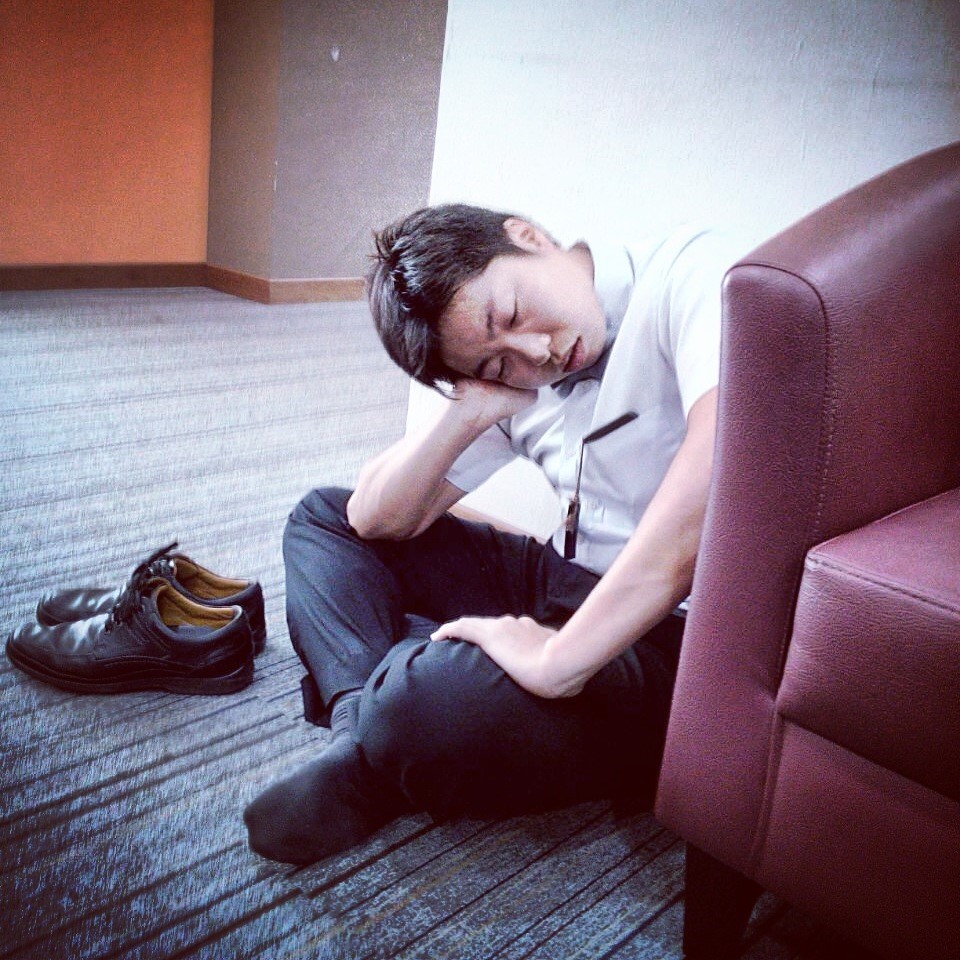 Disclaimer: The views and opinions expressed in this article are those of the author and do not necessarily reflect the official opinion and views of the University.
Disclaimer: The views and opinions expressed in this article are those of the author and do not necessarily reflect the official opinion and views of the University.
 My time studying MBBS at IMU was literally the best time in my life – some may say that studying medicine is stressful, which I don’t deny, but when there is interest in the content we study, learning becomes a joy, and I have been blessed with great batchmates whom I can rely on in difficult times. I have had high hopes for learning Chinese Medicine at IMU, but my experiences have been beyond my expectations. Chinese Medicine itself is a very interesting field to venture into. The strength of Chinese Medicine compared to Conventional Medicine is its flexibility, holism, and patient-centeredness. Since ancient times, Chinese Medicine has been developed to meet the demand of patients’ complaints. Western medicine has – in a short amount of time in history – made great leaps in its technical advancements and saved millions of people. However, during its great leaps, certain aspects of patient care has been overlooked, perhaps NOT due to negligence or carelessness, but more so because of realistic limitations like time and effort required to supply the best evidence-based care for patients to get best results from it. What I have felt during my time in MBBS, is that conventional medicine diagnoses and treat diseases extremely well – especially when they fit the “classical picture” or the textbook presentation. However, some of the patients weren’t completely treated when patients’ complaints are vague, or when there were no structural abnormalities.
My time studying MBBS at IMU was literally the best time in my life – some may say that studying medicine is stressful, which I don’t deny, but when there is interest in the content we study, learning becomes a joy, and I have been blessed with great batchmates whom I can rely on in difficult times. I have had high hopes for learning Chinese Medicine at IMU, but my experiences have been beyond my expectations. Chinese Medicine itself is a very interesting field to venture into. The strength of Chinese Medicine compared to Conventional Medicine is its flexibility, holism, and patient-centeredness. Since ancient times, Chinese Medicine has been developed to meet the demand of patients’ complaints. Western medicine has – in a short amount of time in history – made great leaps in its technical advancements and saved millions of people. However, during its great leaps, certain aspects of patient care has been overlooked, perhaps NOT due to negligence or carelessness, but more so because of realistic limitations like time and effort required to supply the best evidence-based care for patients to get best results from it. What I have felt during my time in MBBS, is that conventional medicine diagnoses and treat diseases extremely well – especially when they fit the “classical picture” or the textbook presentation. However, some of the patients weren’t completely treated when patients’ complaints are vague, or when there were no structural abnormalities.  I have decided to study Chinese Medicine, so that I could find out if there is any way in which I can have variety in the way I treat patients. Ultimately, my interest in healthcare is primary care – the kind of healthcare professional that people can go to first, ask a lot of questions, get referrals from, and get follow-ups from. I am also interested in whatever that may keep us healthy, from dietary habits to exercise methods. Therefore, I thought that having a wider range of expertise may increase the things I can suggest to patients, as well as increase the variety of professionals I can refer my future patients to. I feel that IMU Chinese Medicine curriculum gives us several ways to be exposed to the current state of care that we can provide, through IMU Cares projects as well as hospital visits. Moreover, in IMU we are exposed to multiple healthcare professions – which gives us the opportunity to have inter-professional learning opportunities. This is highly encouraged in IMU, as seen in the IPL (Inter-Professional Learning) Week, as well as IPF (Inter-Professional Forums) organised by the IMU Scholars.
I have decided to study Chinese Medicine, so that I could find out if there is any way in which I can have variety in the way I treat patients. Ultimately, my interest in healthcare is primary care – the kind of healthcare professional that people can go to first, ask a lot of questions, get referrals from, and get follow-ups from. I am also interested in whatever that may keep us healthy, from dietary habits to exercise methods. Therefore, I thought that having a wider range of expertise may increase the things I can suggest to patients, as well as increase the variety of professionals I can refer my future patients to. I feel that IMU Chinese Medicine curriculum gives us several ways to be exposed to the current state of care that we can provide, through IMU Cares projects as well as hospital visits. Moreover, in IMU we are exposed to multiple healthcare professions – which gives us the opportunity to have inter-professional learning opportunities. This is highly encouraged in IMU, as seen in the IPL (Inter-Professional Learning) Week, as well as IPF (Inter-Professional Forums) organised by the IMU Scholars.  The highlight of my time studying Chinese Medicine is the organisation of Chinese Medicine Week in 2015. Our senior batches have organised one before, but I wanted to make it a regular annual event with the aim of having more activities to bring students of our own programme together and to raise awareness of Chinese medicine. I planned and proposed the event, with sponsorship from Student Representative Council (SRC) – The event was a great success thanks to the committee and volunteers who all worked tirelessly, and SRC who was kind enough to sponsor us a substantial amount of money so we can come up with various decorations and exhibitions. Most of my job was to delegate tasks to my friends, and they came up with a lot of interesting unique ideas, which surprised me and made me believe that yes, even with a small number of student in a programme like Chinese Medicine, we can do something impressive.
The highlight of my time studying Chinese Medicine is the organisation of Chinese Medicine Week in 2015. Our senior batches have organised one before, but I wanted to make it a regular annual event with the aim of having more activities to bring students of our own programme together and to raise awareness of Chinese medicine. I planned and proposed the event, with sponsorship from Student Representative Council (SRC) – The event was a great success thanks to the committee and volunteers who all worked tirelessly, and SRC who was kind enough to sponsor us a substantial amount of money so we can come up with various decorations and exhibitions. Most of my job was to delegate tasks to my friends, and they came up with a lot of interesting unique ideas, which surprised me and made me believe that yes, even with a small number of student in a programme like Chinese Medicine, we can do something impressive.  There were plenty of extra-curricular activities that I did at IMU – to name a few; we formed a band and played for countless events throughout my time at IMU, I joined the IMU Cup swimming competition for 8 years in a row and saw my own house rise from the bottom to the top (Pegasus!), joined conferences, and many more things that allowed me to learn things that I could not learn from reading or attending lectures. I have been in IMU for 8 years – 5 years in MBBS, 3 years so far, in Chinese Medicine. I’m grateful to IMU for giving me the opportunities for personal growth. I believe that I am a completely different person from 8 years ago. Now, I am preparing for my credit transfer to Shanghai, and after obtaining my degree in Chinese Medicine, I plan to go back to Japan for my housemanship for 2 years, and see where that takes me. My general aim would still be primary care, but I will see how things will turn out for me. In the distant future, I would love to go into teaching as well – as my lecturers have all inspired me, and being a lecturer of healthcare is a wonderful thing – inspiring people who will inspire more people to be healthy!
There were plenty of extra-curricular activities that I did at IMU – to name a few; we formed a band and played for countless events throughout my time at IMU, I joined the IMU Cup swimming competition for 8 years in a row and saw my own house rise from the bottom to the top (Pegasus!), joined conferences, and many more things that allowed me to learn things that I could not learn from reading or attending lectures. I have been in IMU for 8 years – 5 years in MBBS, 3 years so far, in Chinese Medicine. I’m grateful to IMU for giving me the opportunities for personal growth. I believe that I am a completely different person from 8 years ago. Now, I am preparing for my credit transfer to Shanghai, and after obtaining my degree in Chinese Medicine, I plan to go back to Japan for my housemanship for 2 years, and see where that takes me. My general aim would still be primary care, but I will see how things will turn out for me. In the distant future, I would love to go into teaching as well – as my lecturers have all inspired me, and being a lecturer of healthcare is a wonderful thing – inspiring people who will inspire more people to be healthy!  Disclaimer: The views and opinions expressed in this article are those of the author and do not necessarily reflect the official opinion and views of the University.
Disclaimer: The views and opinions expressed in this article are those of the author and do not necessarily reflect the official opinion and views of the University.



